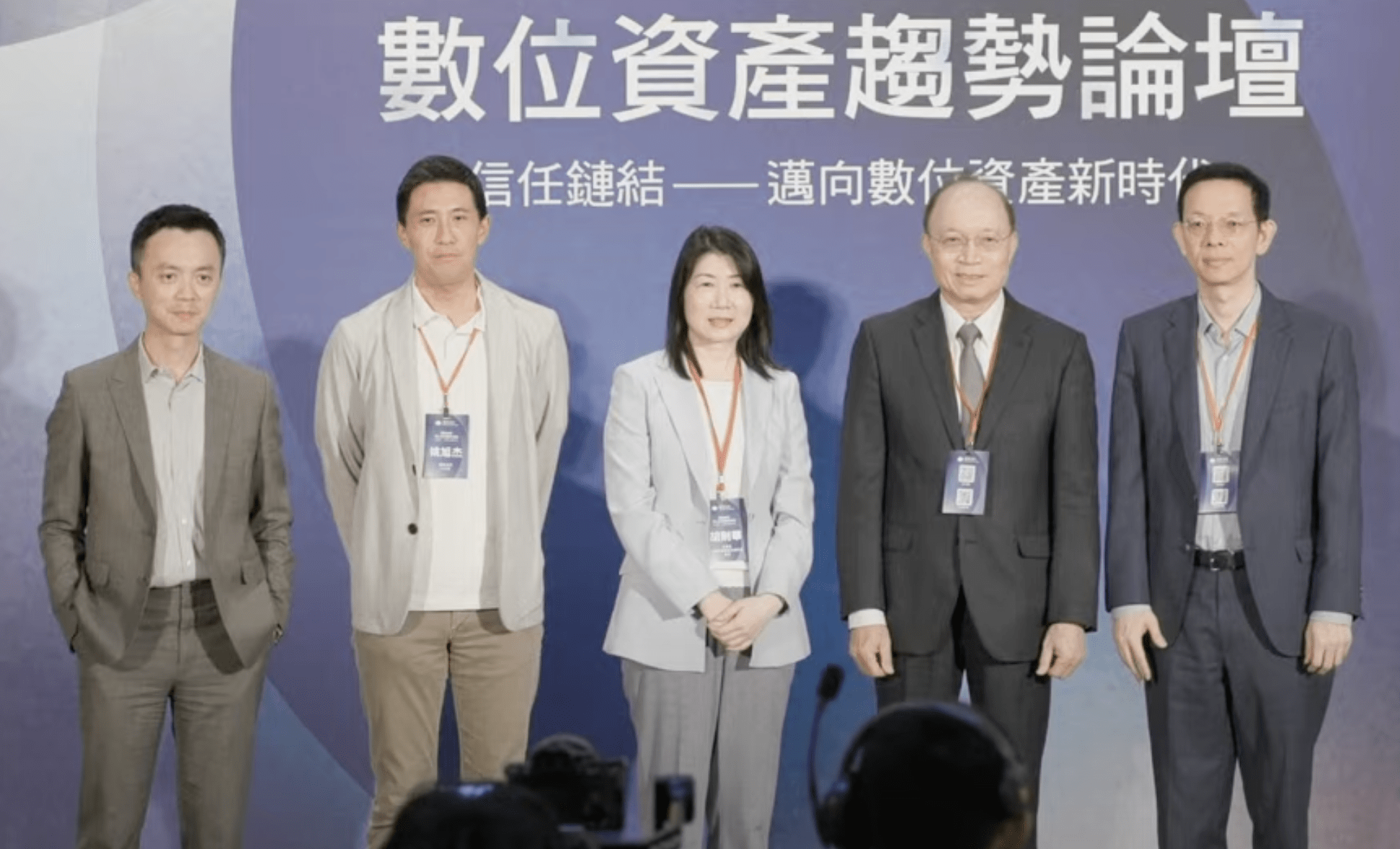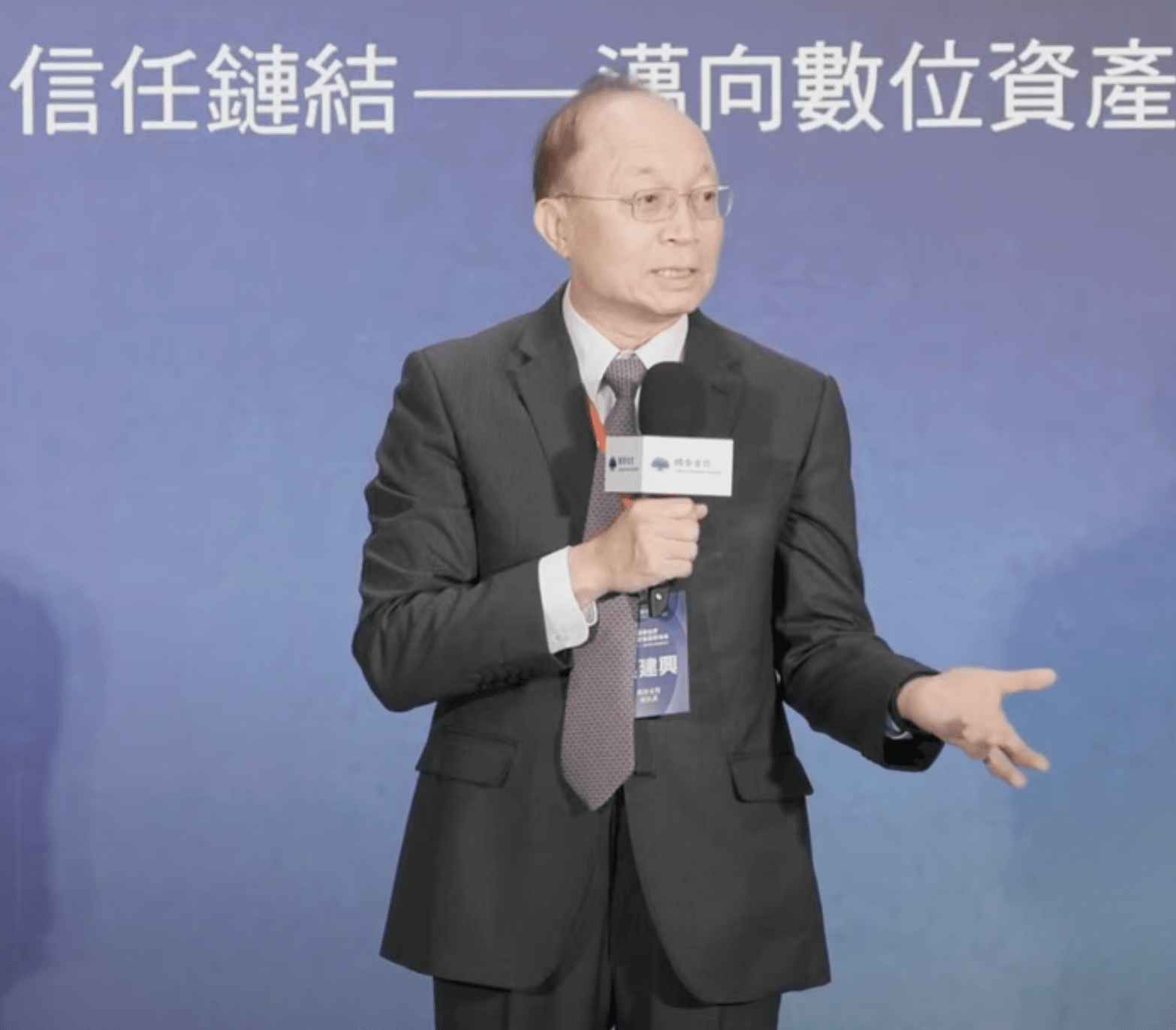The Digital Asset Trends Forum hosted by Cathay Financial Holdings officially kicked off today (8/21), inviting over 30 experts from industry, government, and academia to discuss the future development trends of digital assets in Taiwan, exploring financial innovation services and the implementation of blockchain technology. The opening remarks were made by Wu Jianxing, Chief Information Officer of Cathay Financial Holdings, and Hu Zehua, Director of the Financial Market Development and Innovation Department of the Financial Supervisory Commission.
 Image source: Cathay Financial Holdings Cathay Financial Holdings hosted the Digital Asset Trends Forum.
Image source: Cathay Financial Holdings Cathay Financial Holdings hosted the Digital Asset Trends Forum.
The draft law for virtual assets will enter the Legislative Yuan for deliberation in September, covering the management of stablecoin issuance.
Hu Zehua, Director of the Financial Market Development and Innovation Department of the Financial Supervisory Commission, announced at the forum that the draft law for virtual asset services was submitted to the Executive Yuan on June 27, and it is expected that the Executive Yuan will submit it to the Legislative Yuan for deliberation in September during the next session.
Hu Zehua pointed out that the content of this special law draft is comprehensive, covering definitions of virtual assets, classifications of service provider types, management mechanisms for stablecoin issuance, and important regulations for investor protection, establishing a complete regulatory framework for Taiwan's virtual asset market.
 Image source: Cathay Financial Holdings Hu Zehua, Director of the Financial Market Development and Innovation Department of the Financial Supervisory Commission.
Image source: Cathay Financial Holdings Hu Zehua, Director of the Financial Market Development and Innovation Department of the Financial Supervisory Commission.
Hu Zehua observed that international Web3 development is showing five major trends, including:
Web3 and AI combine to exert utility in smart contracts and decentralized connections.
The RWA asset class has expanded from bond funds to copyrights, gold, and even alcoholic beverages.
Stablecoins are thriving in payment systems and merging with traditional clearing institutions.
Concerns regarding end-to-end security and cross-chain verification have increased.
Applications like Graph or Chainalysis are diversifying in development.
She admitted that the speed of Web3 development is so fast that regulatory authorities are 'a bit unable to keep up,' but emphasized that with strong support from the industry, they will understand how to stabilize market development from a practical perspective.
Four financial institutions participated in the virtual asset custody demonstration, facing many practical operation challenges.
Since November last year, the Financial Supervisory Commission has been promoting the virtual asset custody business demonstration. As of July this year, four financial institutions have been approved to participate in this business demonstration. Hu Zehua stated that although virtual asset custody seems simple, many details need to be considered during actual operation, especially in every aspect from private key creation on the blockchain to virtual asset withdrawal. These practical experiences will influence the future regulatory adjustments for virtual asset custody business by regulatory authorities.
Cathay Financial Holdings' Chief Information Officer Wu Jianxing stated that Cathay United Bank has also participated in the virtual asset custody business demonstration, believing this is an important infrastructure. He hopes to provide customers with safe and reliable virtual asset custody services through rigorous cybersecurity protection and operational processes. He emphasized that this service will not just be a demonstration or experiment in the future, but will be implemented in accordance with policies and market demands.
Further Reading
Taiwan's first! KGI Bank has been approved to custody cryptocurrencies, what business opportunities will this bring?
CTBC and Union Bank have also been approved to enter the field! How will banks custody cryptocurrencies? Key points of the demonstration at a glance.
Cathay United Bank can custody cryptocurrencies! It becomes the fourth trial bank and is also laying out tokenized bonds.
The RWA working group will submit a results report in September, planning to assess the establishment of a trading platform across Taiwan.
The RWA (Real World Assets) tokenization working group promoted by the Financial Supervisory Commission currently has 10 financial institutions participating, including securities firms, stock exchanges, and over-the-counter markets. The central bank and the Financial Information Service Co. have also joined. Hu Zehua revealed that the working group will submit a final report on the POC (Proof of Concept) in September. After the report is completed, regulatory adjustments will begin, and an assessment will be made on whether to establish an RWA tokenization trading platform across Taiwan.
Wu Jianxing mentioned that Cathay Financial Holdings invested in STO (Security Token Offering) several years ago, and in 2023, Cathay Securities became the first brokerage to issue an STO. The entire process, from internal R&D processes, risk control, internal control systems, to finding companies willing to use STO for issuance, has been full of challenges, but through these experiences, they have accumulated considerable strength. Cathay Financial Holdings has also participated in the Financial Supervisory Commission's RWA group's POC program, working with several banks and brokerages to tokenize traditional bonds on the blockchain and experience the benefits of blockchain technology.
 Image source: Cathay Financial Holdings Cathay Financial Holdings' Chief Information Officer Wu Jianxing.
Image source: Cathay Financial Holdings Cathay Financial Holdings' Chief Information Officer Wu Jianxing.
Industry, government, and academia are collaborating to steadily advance the development of the digital asset market.
Hu Zehua emphasized that financial innovation needs a flexible and forward-looking regulatory framework to amplify innovation benefits, and market development must establish trust connections and mutually achieve success.
She stated that although the pace of the regulatory authorities' promotion may not be as fast as the market expects, they hope to advance steadily to avoid situations where other markets rapidly develop and then suddenly hit the brakes, causing sudden policy changes that leave industry players unprepared.
Wu Jianxing believes that establishing a system cannot rely on a single aspect to formulate or promote; it requires collaboration between industry, government, academia, and research sectors to create trustworthy standards for the protection of investors' rights.
He pointed out that virtual currency was previously seen as a technology issue, but it has now entered the mainstream financial system. From the issuance of Bitcoin and Ethereum ETFs in the United States and Hong Kong, the EU's MiCA regulatory framework, the passage of the U.S. Financial Innovation Act, to the implementation of Hong Kong's stablecoin regulations, Taiwan is at a critical juncture in the development of digital assets, facing unprecedented technological, model, and regulatory challenges brought by new asset classes. Financial institutions and policymakers need to consider how to participate and respond, working together to create a more trustworthy and future-oriented digital asset market.
Further Reading
Cathay Financial Holdings tests issuing on-chain bonds! The person in charge reveals the strategy, and the RWA trend has also reached Taiwan.
'Cathay Digital Asset Forum: Financial Supervisory Commission reveals the progress of the special law, will Taiwan also have an RWA platform?' This article was first published in 'Crypto City'.
